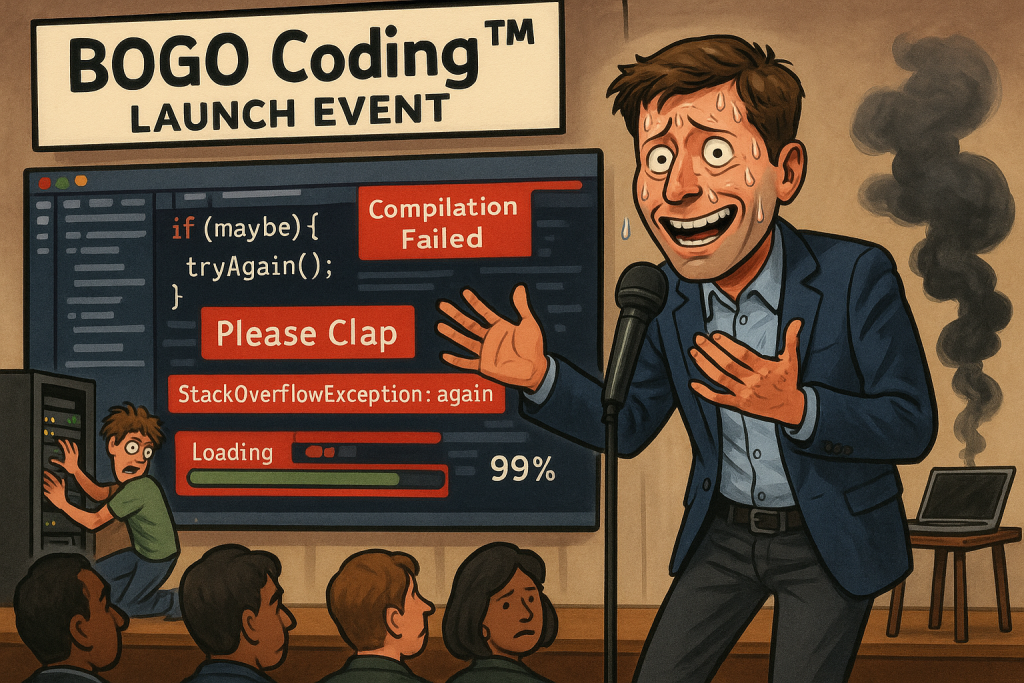SAN FRANCISCO, CA — In what is being hailed as both a breakthrough in AI development and a war crime against computer science, OpenAI CEO Sam Altman today announced the launch of BOGO Coding™: an AI-powered programming paradigm that writes code by randomly generating lines until something runs—or at least stops throwing errors for reasons no one fully understands.
“BOGO Coding is inspired by the elegance of BogoSort,” Altman explained during a keynote address delivered entirely in pseudo-code. “Why rely on intent, logic, or structure when you can just keep trying random crap until the compiler shuts up?”
Unlike traditional AI-assisted coding tools that attempt to infer the developer’s goals or follow coherent logic, BOGO Coding embraces a more chaotic approach. When prompted, it generates and shuffles lines of code until they appear to satisfy some condition—any condition, really, including pure luck.
“If it compiles, it ships,” said OpenAI Senior Engineer Cassie Lu, who helped train the model on over 30 terabytes of code from Stack Overflow answers with negative karma.

“BOGO Coding Doesn’t Solve Problems — It Survives Them”
According to internal documentation, BOGO Coding uses a probabilistic brute-force architecture that iteratively generates code fragments, refactors them at random, and tests each version in a sandbox labeled “Vibes-Based Linter.” The process continues until either the application runs or the GPU melts.
Early adopters are already raving about the results.
“My login page took 17,000 iterations and now only works on Tuesdays,” said developer Brian Koslow. “But it works. And honestly, isn’t that what agile is all about?”
The Future of Non-Deterministic Software
Critics of BOGO Coding have raised concerns about stability, maintainability, and the existential implications of shipping code that no human understands.
“Traditionally, you start with a spec and write code to fulfill it,” said MIT computer science professor Dr. Elena Voronov. “With BOGO Coding, you start with nonsense and hope something vaguely usable emerges from the algorithmic void. It’s like Schrödinger’s Pull Request.”
In response to these critiques, OpenAI announced an upcoming companion product: BOGO Debugger, which automatically explains what your code might be doing based on speculative fiction and astrological inference.
Investors Excited to Not Understand What They’re Funding
Despite the chaos, the venture capital community is frothing at the mouth. Sequoia Capital has already invested $800 million in IteraTech, a BOGO-native dev platform that uses quantum computing to try every possible commit message simultaneously.
“This is the end of deterministic software,” said IteraTech CEO Dani Brix. “We don’t code for outcomes. We code toward potentialities.”
Altman agrees. “With BOGO Coding, you no longer need to understand your problem or even define it. The system will keep trying things until one of them does… something. It’s not trial and error. It’s trial as a lifestyle.”
At press time, BOGO Coding was already being adopted by several high-profile companies, including Meta, where it will replace the existing codebase with a randomly shuffled deck of React components and crossed fingers.

Leave a Reply